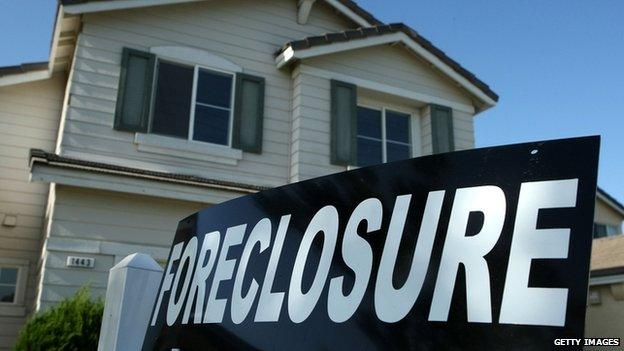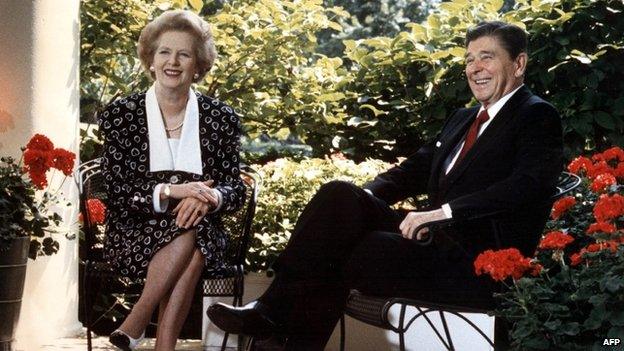Is inequality the enemy of growth?
- Published

After the 2008 crash, many Americans who had borrowed beyond their means lost their homes
Some 15 years ago, even after Labour won office in 1997, there was a consensus in the Treasury - which was shared by Tony Blair and other New Labour ministers - that promoting equality meant sacrificing economic growth.
So the thrust of government policy was to stimulate the economy, and never mind if the gap between rich and poor widened - so long as the poor became richer too.
But do we have to choose between equality and expanding the cake? Are more equal societies inevitably societies with proportionately smaller national incomes than less equal societies, all other things being equal?
Strikingly, the new orthodoxy at that most establishment and conservative of financial institutions, the International Monetary Fund, is that the reverse is true - namely that inequality is not the friend of faster growth, of a bigger cake, but can be its nemesis.
What is more, another binned view is that of Thatcher/Reagan - for years taken as a truth of Mosaic status - to the effect that government efforts to reduce the gap between rich and poor end up impoverishing us all.
Post-2008 lessons
So why this new faith in egalitarianism?
One important cause has been the crash of 2008 and the simultaneous Great Recession - the consequence of which has been to leave the US 16% poorer than it would have been if previous growth trends had been sustained and Europe 17% poorer.
By the way, the impact of that economic shock on the median or typical incomes of most Americans, especially the poorer ones, has been shocking - and it has actually widened inequalities.
A recent survey by the US Federal Reserve showed that the incomes of America's poorest 20% fell 8% between 2010 and 2013.
In fact, the incomes of all Americans fell in this period, except for the richest 10% - whose income in these low growth years actually rose 10% - to a median of $397,500.
There is perhaps something slightly odd about an economic system in a democracy which channels the spoils only to the richest.

Mrs Thatcher and Ronald Reagan's theories on reducing inequality have been widely questioned
So what is going on? Why might widening inequalities make most of us poorer?
Well you can hear one important explanation on Radio 4's Analysis programme, tonight (Monday) at 8.30pm.
In it, I chat to two young American economists, Amir Sufi and Prof Atif Mian, about the link they've established in their book House of Debt between big debts accumulated by America's poorest homeowners and the great financial debacle of six years ago.
Much of the story is familiar: financial innovation, the bundling, slicing and dicing of low quality loans to the poor, reassured banks it was safe to lend to those with miniscule or non-existent incomes.
So those who wanted a better lifestyle, but were unable to earn their way to a better life, instead borrowed large sums to buy the homes they always wanted.
But of course the financial innovation - the so-called structured finance - could only disguise the unaffordability of the loans: it could not help an over-stretched borrower pay his or her debts.
'No cushion'
So in 2007 and 2008, vast numbers of loans to poor Americans went bad, US house prices plummeted and banks all over the world incurred losses, sometimes devastating losses.
The initial economic effect was a slump in consumer spending, as millions of poor Americans saw the value of their loans drop below the value of their debts, many lost their homes and vast numbers lost their jobs.
The important point is that poor people have no cushion of savings to eat into when their incomes fall, so when they become poorer, they spend much less; and when millions of them spend much less - a recession is more-or-less inevitable.
Economists characterise this as the marginal propensity to consume of those with lower incomes being higher than for richer people.
So if Professors Sufi and Mian are right that the primary cause of America's recent deep recession was borrowing by those on low incomes to better their lot - and because of the interconnectedness of banks and economies it would be an important cause of our recession too - then there is plainly a connection between inequality and severe shocks to our wealth.
Which is why equality is a concept being rehabilitated, and not just on the left of politics.